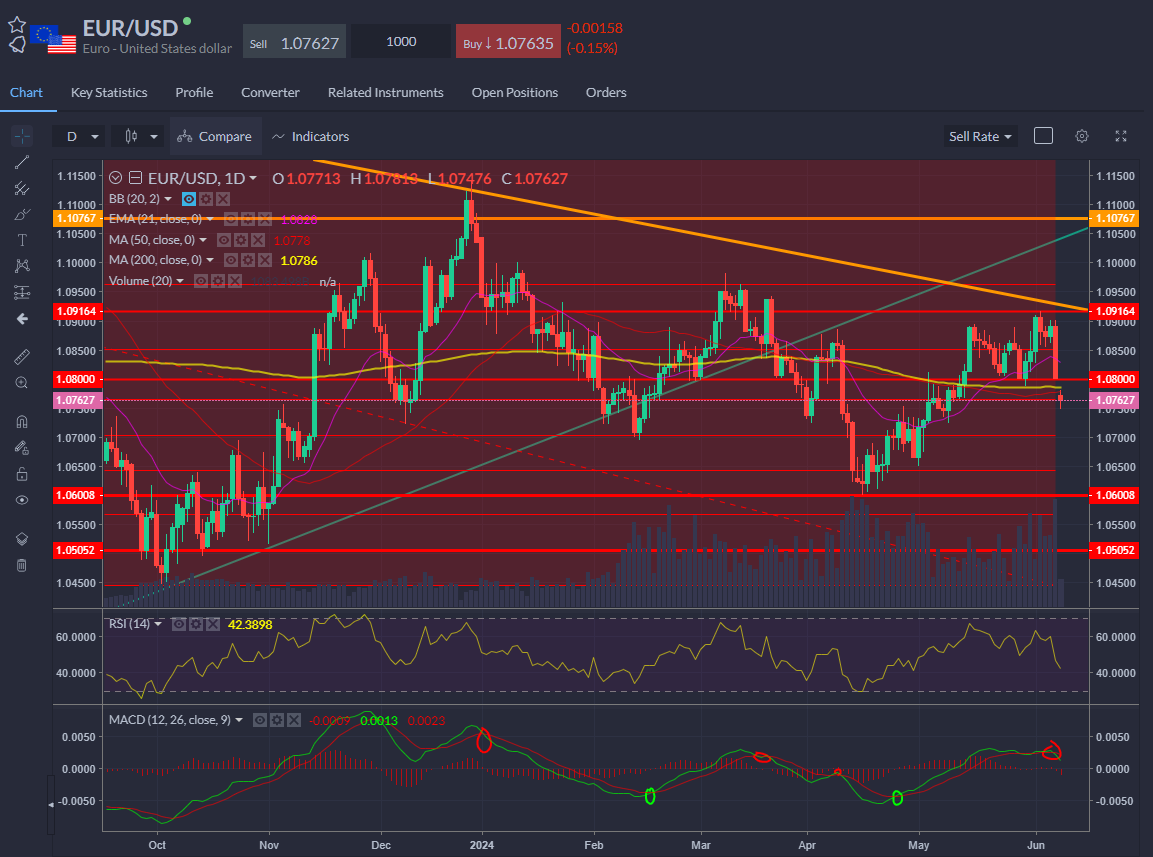Oh snap! France’s leader Macron called a snap election after the right humiliated him in European elections. Marine Le Pen’s Rassemblement National took a third of the vote, while Macron’s own party got about 15%. Come what may, Macron will still be president until 2027. But it could lead to an uneasy, loveless marriage – cohabitation they call it – with a PM from another party.
As I'd be talking about last week, there was a strong potential for a euro-negative reaction from the markets to a sizeable swing towards RN. Across Europe right wing parties did well. We talked about this in a recent podcast. And it was a key theme in the 2024 Watchlist: “The hard right is closer to power across Europe than it has been for a long time. In 2024, with European Parliamentary elections due to take place in June, the right will see further advances as the fight for the idea of Europe reaches new ferocity.”
Whilst the far-right did well, the centre-right grouping actually strengthened its grip on the parliament. But it was the big move in France and Macron’s reaction that has left the market a little stunned. Last Monday I wrote: “Fragmentation risks are the thing we are going to listen out for – but as yet we are not seeing much in the way of splintering of the core. The French result will be crucial to see how much Macron has lost the people.”
And there is fun narrative spin on all this – Macron’s election call is smart, they are saying, - to let RN mess up the campaign (they didn’t do a bad job in this one, so that is a weird idea) or to mess up governing (missing the point that people don’t exactly think Macron has done a good job – how bad could they be?!). The fundamental mistake to make is to think that people voting for the right are naturally in the wrong. And there is precedent. Meloni has achieved it in Italy – why not Le Pen? If RN wins the parliament and gets through some defining laws on, say, migration or justice, it would leave Macron looking completely irrelevant and pointless – not a good look for a presidential campaign. The fact is I don’t know what happens next – but it plays on the increasingly dominant theme of ‘fragmentation’ on the global scene.
EUR/USD gapped lower at the open last night with a chunky move lower to a one-month low as Ge/Fr bond spreads widened. European stock markets were lower French stocks taking a bit of a beating. The CAC 40 tumbled more than 2.2%, led lower by banks, with BNP and SocGen down close to 6% on the news on the move on bonds (banks own the bonds so this is probably more a bit of a writedown than a pure ‘sell France’ type trade, although there is a bit of that too. The DAX shed 0.75% after the strong showing for AFD in the polls. The FTSE 100 dropped about half a percent after a flat week.
So, the market is seeing political risk premia from these election results. Investors are waking up to the possibility of France veering decisively to the right – the kneejerk is totally predictable, even if maybe you could make the case for the counterfactual. You would say that the deficit story in France is unlikely to improve the more RN has a say – all else equal that should push up yields and risk premia. Green policies would also be a lot harder to get through. There are also questions about support for Ukraine, and lots else. You can see why market reaction is to kneejerk down.
But it’s also probably true that risk sentiment was always going to be a bit soft after the nonfarm payrolls on Friday. Asian currencies slipped against the dollar overnight after the relatively strong jobs report countered the emerging weak-economy narrative in the US. China, Hong Kong and Taiwan equity markets were closed for a holiday; Tokyo rose after GDP data was revised a bit higher.
EUR/USD Gap Down

